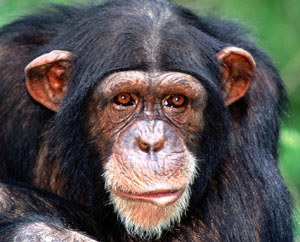Chimpanzees can be selfless, but only when asked
 Tokyo - Humans aren't the only species that provide aid to one another without expectation of reward, scientists have discovered. Chimpanzees do so as well, but generally only when the help is requested.
Tokyo - Humans aren't the only species that provide aid to one another without expectation of reward, scientists have discovered. Chimpanzees do so as well, but generally only when the help is requested.
Researchers at the Primate Research Institute and the Wildlife Research Centre of Japan's Kyoto University found that chimpanzees will help their peers even if there is no personal gain or immediate payback. But the animals need to be asked for help first, as they rarely volunteer assistance.
This form of unselfishness could have been what led to altruism in humans, Shinya Yamamoto and his colleagues speculated in a recently published study in the online science journal PLoS ONE.
Researchers conducted two experiments with six pairs of chimpanzees. Three of those were mothers and their children. The other three were non-related adults. Animals were placed in see-through cages.
In one test, the animal needed a straw to drink some juice from a box. In the other, it needed a stick to pull the juice box into its cage. At first, the animal that needed the straw had the stick and vice versa. In a second test of the mother-child pairings, the animals were put into a situation with no chance of reward, since each animal was assigned a set role, either as the helper or the helped.
In 24 attempts, during which roles were constantly reversed, researchers saw that the animals would hand over the tools their partner required. But the help came only after the partner had actively sought help, either by extending a hand through an opening or clapping hands.
Results were the same when there was no possibility of reciprocity and when the pairs were unrelated animals.
"Communicative interaction played an important role in altruism in chimpanzees," said Yamamoto. "Whereas humans help others without being asked to do so, chimpanzees almost never freely offer a useful tool to partners in difficulties."
Only offering aid when expressly asked to do so could serve a function. It insures that the helper does not offer assistance that is possibly not needed. Now researchers will need to ask whether voluntary altruism is a unique characteristic of man. (dpa)